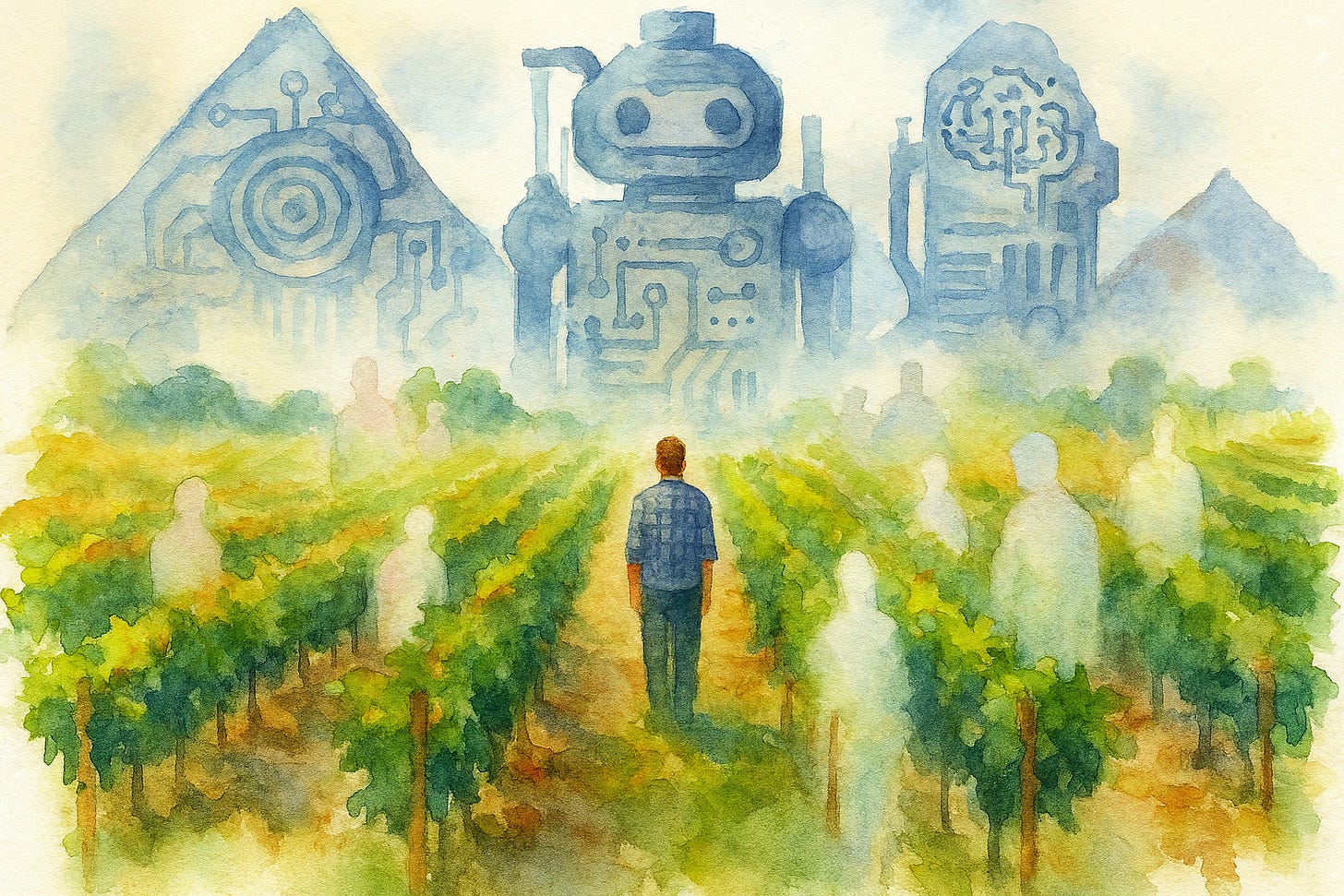How a (very) Few Number of Humans Can Stay Employed As Wine Writers in the Age of AI
It means identifyig and celebrating and uplifting the gifted among us
I am convinced that people will eventually, and nonchalantly, come to accept that the vast amount of written, spoken, and viewed material is created by machines and not human beings. This acceptance will come without much dissent, primarily because what is consumed through reading, listening, and watching will meet their needs for good information and entertainment.
What this means for people who write about wine and those who consume wine material is two different things. For those who indulge in wine content, it means easy accessibility to entertaining information about their favorite drink. For those who create this content, it means unemployment.
I don’t know exactly how it happened, but I became enamoured by wine writers very early in my wine career as a publicist. I suppose it was a combination of working in the wine industry, interacting with wine writers, and having a genuine love of wine. But also, I had a love of writing. Not necessarily of doing the writing myself, but of consuming it, and consuming prose created by people with a knack for using a stylish mix of words and grammar to demonstrate their ability to make compelling connections between ideas.
These kinds of people stuck out like a well-made wine among a flight of corked bottles. Gerald Asher, Matt Kramer, Hugh Johnson, Alice Feiring, Terry Theise, James Conaway, Dan Berger, Charles Sullivan, just to name a few. And whenever this quality of wine writing is published, it is always highlighted in The Spill.
But the vast amount of wine writing that has been published over the past 30 years did not achieve, nor did it seek to achieve, the status of fine prose. Most wine writing was and remains utilitarian, meant to inform or entertain without much demand by the reader for thoughtful inquiry by the writer or publications.
The writers who produce these kinds of articles, the utilitarian type, will be unemployed very soon, as the product of artificial intelligence and large language models makes them—and the fees extended to them by publishers—unnecessary. Can any of these writers survive an AI present and future?


